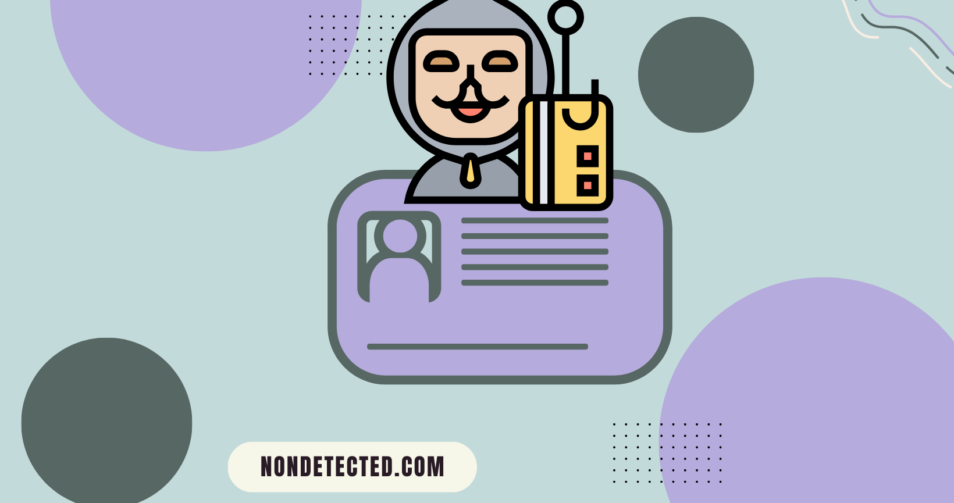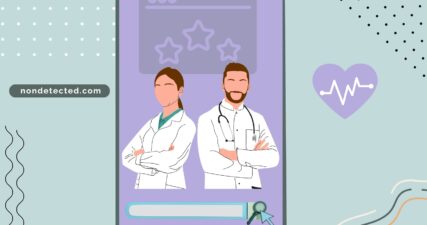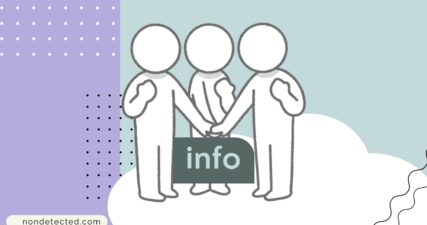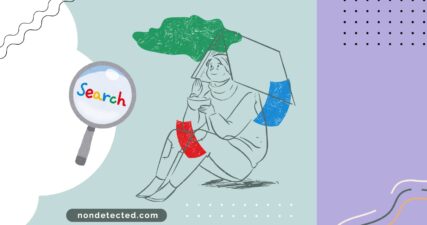Identity Theft. What Can You Do if It Happens? How to Prevent It?

It is important to know how to prevent criminal identity theft because your identity is one of the most valuable things that you own in today`s digital age. At the same time, it is one of the easiest to steal. This kind of theft is a growing concern because criminals increasingly target individuals to access their information for fraud, financial gain, or even to commit crimes under their names.
NonDetected is here to help you avoid identity theft and solve the issue if this problem arises.
What Is Identity Theft?
So, what is identity theft? This is the act of stealing a person’s financial and personal information. They might get this data online, steal physical documents, like a passport or driving license, or even look through an individual`s rubbish to find personal details on bank statements, bills, receipts, and invoices.
In the case of success, a fraudster can commit identity fraud, which can be taking control of the victim`s bank account, opening accounts in their name, or applying for credit they are not going to return.
How Can Identity Theft Happen?
Before you learn how to deter identity theft, you might want to know how this issue happens. The truth is that identity theft can occur through different methods, and thieves tend to utilize a combination of tactics. Further, you can find a few common reasons:
- Phishing and scams. Cybercriminals often trick people into providing sensitive information through fake emails, websites, or phone calls, also known as spoofing. These phishing attempts might seem to be from reputable organizations or financial institutions.
- Data breaches. If companies or websites that store your personal information experience data breaches, hackers can gain access to large amounts of personal data.
- Skimming. This situation happens when a thief utilizes a small device to copy the data from your credit or debit card. This information can be used to make fraudulent transactions.
- Lost or stolen wallets. If your wallet is stolen, criminals can use your identification, cards, and other personal details to commit identity theft.
- Social media and publicly available information. Many people unknowingly share too much personal information online, and it can then be utilized by criminals to commit fraud.
Mail theft. Criminals can steal credit card offers, bank statements, or other sensitive documents from your mailbox.
Are There Any Warning Signs of Identity Theft?
Regardless of the types of identity theft, there are a few signs that can imply that you are facing the issue. Here are some of these warning signs:
- Unfamiliar charges on your bank accounts. This is when you need to pay attention to even small charges. You should make sure that you follow up with any sort of fraud alerts that you get from your lenders or bank.
- Applications for new credit are denied. Fraudsters tend to rack up charges on cards that are rarely used, and they tank your credit score at the same time.
- Missing mail. You should be especially cautious if bills or other important documents are lost. In some cases, thieves utilize a charge-of-address request to redirect your mail to their address. This allows them to access even more of your personal details.
- Data breach notifications. According to the law, companies are required to report breaches to impacted clients. If you receive notification via regular mail or an email, your information might be circulating on the Dark Web.
- Unexpected password reset or two-factor authentication. These are obvious signs that scammers have access to your password, email, or both, and they are making attempts to lock you out of your accounts.
- Unfamiliar income or jobs on your Social Security statements. Fraudsters can utilize your Social Security number to file fake tax returns and steal your refunds or to send applications for jobs. You will receive a notification in the mail if the IRS suspects fraud on your tax return.
How Can Stolen Identity Be Used?
It is worth knowing how to avoid identity fraud because your personal information can be utilized in a few harmful ways:
- Opening new credit accounts. With the help of stolen identity, criminals might open new credit cards or loans in your name. This will cause debt to pile up under your name.
- Making purchases. Thieves can buy things with stolen credit card numbers, and this will impact your financial reputation.
- Tax fraud. Fraudsters can use your Social Security number to file false tax returns and collect refunds in your name.
- Health insurance fraud. Some thieves utilize stolen identities to obtain medical care, leaving you with the bills.
- Employment fraud. Thieves can use your identity to gain employment, which might result in issues like unpaid taxes or wage garnishments.
- Criminal activity. Stolen identities can also be utilized in committing illegal activities, which can lead to wrongful criminal charges being brought against the victim.
How Can Identity Theft Be Prevented?
So, how can identity theft be prevented? Even though it is not possible to guarantee woo percent protection for this issue, there are a few things that you can do to reduce the risk:
- You should use strong passwords. It is important to make sure that all your online accounts are protected by complex passwords and avoid reusing passkeys across websites. You can utilize a password manager to store them safely.
- You should enable two-factor authentication. The bigger part of services, such as banking applications and email, come up with two-factor authentication for an additional layer of security. Thus, it is recommended to always enable this feature wherever possible.
- You should monitor your credit regularly. Another thing you can do is to keep an eye on your credit report for any suspicious activity. In this case, you can notice things before something disastrous happens.
- Be careful with personal details online. One more recommendation is to avoid oversharing personal data on social media because fraudsters tend to gather information from social platforms for identity theft.
- Sensitive documents should be shredded. You should always shred credit card offers, old bank statements, and other documents that contain personal information before you dispose of them.
- Using a VPN is important. When using the Internet, especially on public Wi-Fi networks, you should utilize a VPN to protect yourself from hackers.
- Guard your Social Security number. It is important to limit the cases where you share your Social Security number, and you should only provide it when necessary.
- You should never click on unknown attachments or links. You should always be cautious about unsolicited messages and emails. It means that you should never follow links or open attachments until you are sure that they are from a trusted source.
What Should I Do If My Identity Is Used by Somebody Else?

If the tips on how to avoid identity fraud do not help, and you discover that your identity has been stolen, you should take the following steps immediately.
1. Act Quickly to Prevent Further Damage
The faster you act, the more likely you are to limit the damage:
- Contact your bank and credit card issuers. You should immediately inform them of any fraudulent transactions. They may issue a fraud alert, block the stolen card, and begin investigations into the charges.
- Place fraud alerts. It is important to contact one of the three credit bureaus (Experian, Equifax, or TransUnion) and request a fraud alert on your file. This alerts creditors to take extra steps to verify your identity before granting credit in your name.
- Freeze your credit. Freezing your credit file can prevent further attempts to open accounts or access credit in your name.
2. Report the Identity Theft
- File a report with the Federal Trade Commission (FTC). This website will guide you through creating a recovery plan and provide the necessary paperwork to report the crime.
- File a police report. It is important to contact your local law enforcement to file a police report. This step can help you in case of any future legal complications related to the crime. Make sure that you get a copy of the report for reference.
3. Review Your Credit Report and Statements
- Review your credit report. Go through your credit report to identify any accounts or activity that you did not authorize. You can request a free copy of your report from each of the three major credit bureaus.
- Dispute fraudulent accounts. Contact the creditors directly to dispute any unauthorized accounts or transactions. You will be required to provide them with the police report and FTC identity theft report to help prove the fraud.
4. Secure Your Accounts and Online Presence
- Change passwords and security Questions. You should quickly update passwords for all online accounts, especially banking and email accounts. Choose strong, unique passwords and enable two-factor authentication (2FA).
- Monitor your bank and credit card statements. You should keep an eye on such things for any fraudulent charges or suspicious activity. Notify your bank or credit card company right away if you spot anything unusual.
- Alert the IRS. If your tax information has been compromised, notify the IRS. They can help you take steps to protect your tax filings and prevent fraudulent tax returns in your name.
5. Seek Legal Help If Necessary
If you face significant financial or reputational harm from the theft, you should consider seeking legal help:
- Consult with an attorney. If you face challenges getting fraudulent accounts removed or experience financial damage, a lawyer who specializes in identity theft or consumer protection may be able to assist you in navigating legal avenues.
- File a civil lawsuit. In some cases, victims of identity theft choose to pursue civil action against the thief if they can be identified.
6. Delete Your Personal Information from the Internet
After reporting and securing your identity, it is important to remove any lingering personal information that may still be available online. Identity thieves can use publicly accessible data to continue exploiting your identity.
- Check data broker websites. Many data brokers collect and sell personal information. You can request to have your data removed from these websites. Websites, such as Spokeo, Whitepages, and PeopleFinder, are common sources for this type of information.
- Search for your personal info online. You should conduct a thorough search to find any exposed personal data that could be used maliciously. Agencies, like NonDetected, can help you locate and remove sensitive information from public sites, reducing the risk of further exploitation.
Wrapping Up
Identity happens to be a serious crime that can result in disastrous consequences. The great news is that there are steps to prevent the issues, and if you know how to avoid identity fraud, you might never face the issue.
At the same time, NonDetected is always there to assist you in this kind of cases – your online reputation will be successfully regained. You just need to contact our professionals, and they will do their best to make your life easier.


